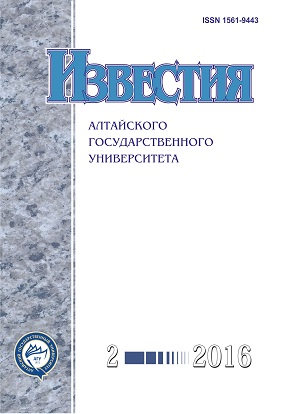The Turkestan Commission of All-Russian Central Executive Committee and the National Question in the Turkestan ASSR (1920)
Abstract
The principles of the Bolsheviks’ national policy were the subject of constant inner-party discussion at the time of establishment of the Soviet regime; according to national specifics of different regions these principles were corrected and modified. The leaders of RCP(b) understood that the main challenge for class and international principle of the Soviet regime organization in national borderlands may come from ideology of nationalism in its regional variations. Declaring of the right of the nation to self-determination and the creation of the Autonomous Republics in RSFSR were caused by the strategies to draw the working class of the borderline regions on the side of the Soviet government and to break “interclass alliance” formed by nationalism. At the beginning of the 1920s RCP(b) faced with the attempts of the Communist Parties representatives in the Sоviet Turkic regions, particularly the chairperson of the Central Executive Committee of the Turkestan ASSR T. Ryskulov, to synthesize the ideals of communism with the ideology of pan-Turkism in order to solve the national question in the Autonomous Republics. The article considers the activity of the Turkestan Commission of All- Russian Central Executive Committee which became an example how the central bodies of the Party reacted to the ideas of “communist pan-Turkism”. The Turkestan Commission initiated the forming of ethno-territorial approach of the Bolsheviks to the question of national self-determination of people in the region.
DOI 10.14258/izvasu(2016)2-06
Downloads
Metrics
References
Халид А. Туркестан в 1917-1922 годах: борьба за власть на окраине России//Трагедия великой державы: национальный вопрос и распад Советского союза. -М., 2005.
Программа Российской коммунистической партии (большевиков). Принята VIII съездом партии 18-23 марта 1919 г. . -URL: http://www.agitclub. ru/center/comm/rkpb/duverge.htm Последнее посещение 22.02.16.
Государственный архив Российской Федерации. -Ф. 1318. -Оп. 1. -Д. 441.
Арапов А. Крах проекта Тюркской советской республики 1919-1920 гг. . -URL: http://www.centrasia.ru/news2.php?st=1336816380. Последнее посещение 22.02.2016.
Абашин С. Национализмы в Средней Азии. -СПб., 2007.
Вишневский А. Центральная Азия: незавершенная модернизация//Вестник Евразии. -1996. -№ 2.
Российский государственный архив социально-политической истории (РГАСПИ). -Ф. 122. -Оп. 1. -Д. 129.
Акрамов А., Авлиякулов К. В.И. Ленин, Турккомиссия и укрепление советской власти в Средней Азии. -Ташкент, 1991.
РГАСПИ. -Ф. 2. -Оп. 1. -Д. 14099.
Ленин В.И. Замечания на проекте решения ЦК о задачах РКП(б) в Туркестане//Полное собрание сочинений. -Т. 41.
РГАСПИ. -Ф. 640. -Оп. 1. -Д. 56.
Izvestiya of Altai State University is a golden publisher, as we allow self-archiving, but most importantly we are fully transparent about your rights.
Authors may present and discuss their findings ahead of publication: at biological or scientific conferences, on preprint servers, in public databases, and in blogs, wikis, tweets, and other informal communication channels.
Izvestiya of Altai State University allows authors to deposit manuscripts (currently under review or those for intended submission to Izvestiya of Altai State University) in non-commercial, pre-print servers such as ArXiv.
Authors who publish with this journal agree to the following terms:
- Authors retain copyright and grant the journal right of first publication with the work simultaneously licensed under a Creative Commons Attribution License (CC BY 4.0) that allows others to share the work with an acknowledgement of the work's authorship and initial publication in this journal.
- Authors are able to enter into separate, additional contractual arrangements for the non-exclusive distribution of the journal's published version of the work (e.g., post it to an institutional repository or publish it in a book), with an acknowledgement of its initial publication in this journal.
- Authors are permitted and encouraged to post their work online (e.g., in institutional repositories or on their website) prior to and during the submission process, as it can lead to productive exchanges, as well as earlier and greater citation of published work (See The Effect of Open Access).








